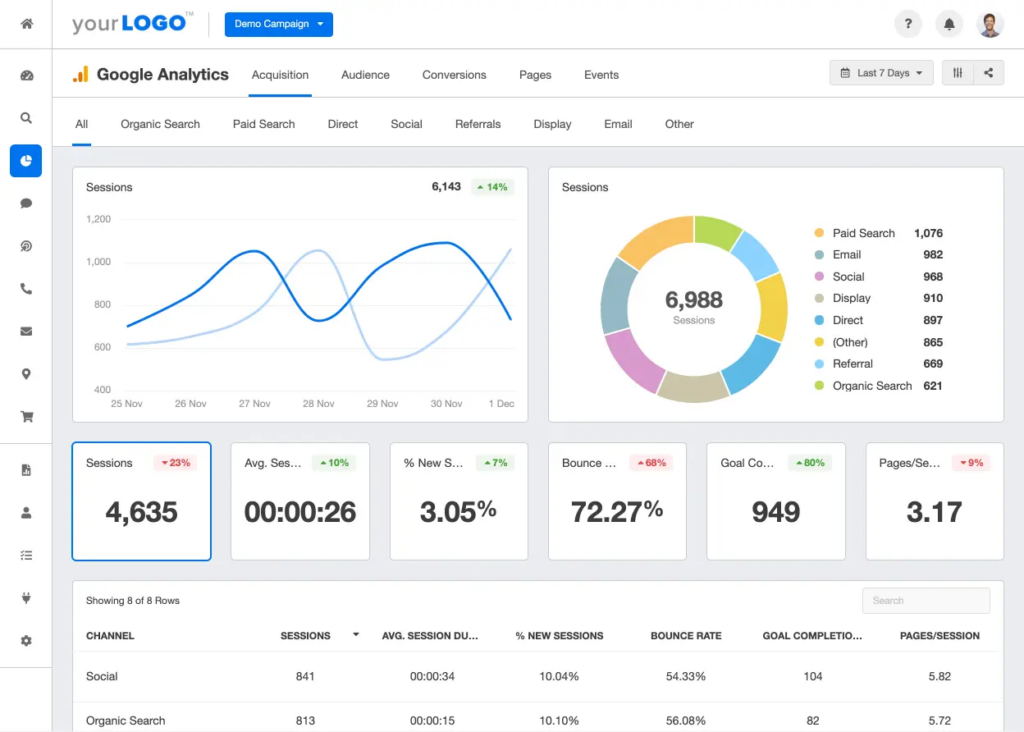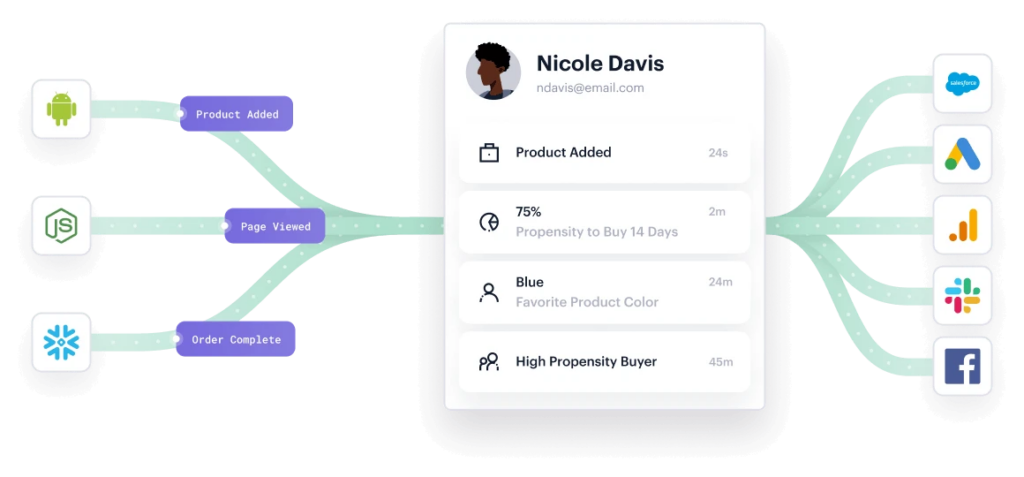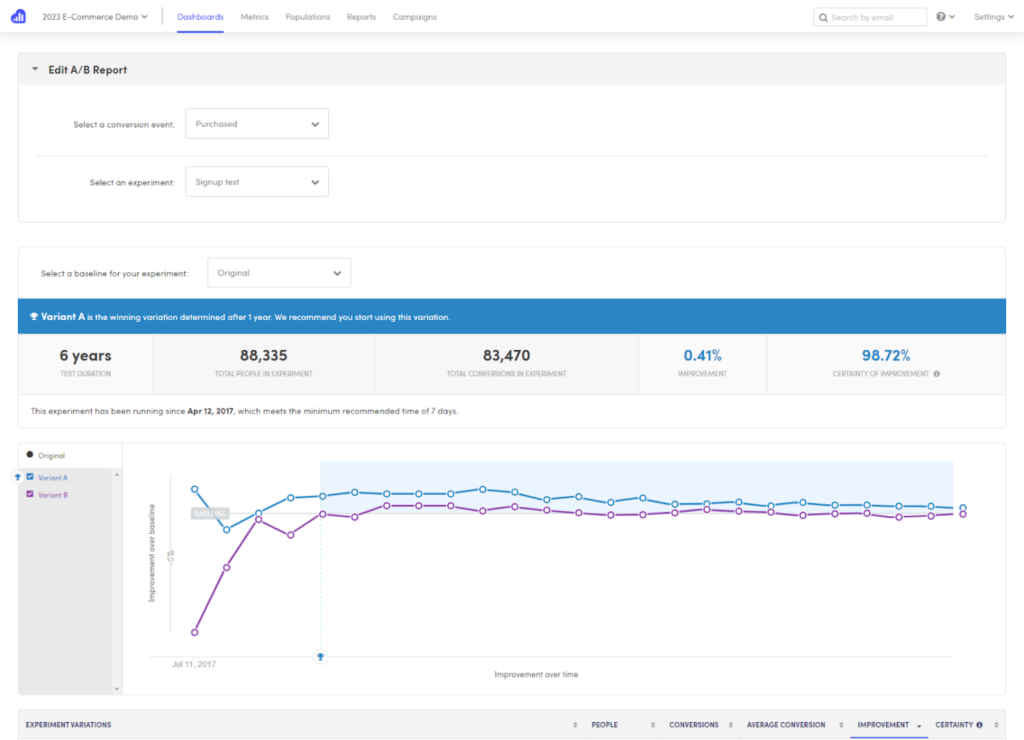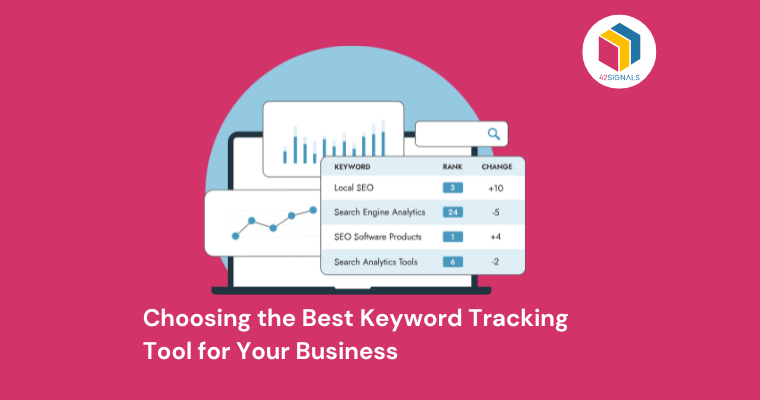One of the most critical components of any successful online store is analytics, which provides valuable insights into customer behavior, sales patterns, and market trends. With so many options available, we’ve compiled a list of the top eCommerce analytics tools of 2024, along with their features, comparisons, and reviews.
Ecommerce Analytics Tools of 2024
Google Analytics

Image Source: Agency Analytics
Google Analytics (GA) remains one of the most widely used eCommerce analytics platforms, and for good reason. It offers a wealth of features, including traffic analysis, conversion tracking, audience demographics, and behavioral data. GA integrates seamlessly with other Google products like AdWords and Tag Manager, making it a powerful tool for businesses of all sizes.
Pros
- Robust set of features
- Integrates well with other Google products
- Free version available
Cons
- Can be overwhelming for beginners
- Limited in terms of advanced segmentation and attribution modelling
Reviews
- “Implementation was easy, I just had to add the code to my site, and within minutes, I was collecting data on traffic, page views and user behavior. the traffic metrics are clear, you can analyze where our visitors are coming from and how they were interacting with our content. I discovered that most of our visits come from social networks, which is useful for adjusting our marketing strategy.” – Rodolfo
- “Google Analytics allows detailed tracking of website traffic, including traffic sources, user behavior and conversions. This has allowed me to identify which marketing strategies are most effective and where I should focus my efforts to improve site performance. I can have customized reports and set specific objectives, this has been invaluable in monitoring progress towards my business goals. Being able to measure the ROI of my advertising campaigns and adjust accordingly has been critical to the success of my online business.” – Walter
Adobe Analytics
Image Source: Easyinsights
Adobe Analytics is another eCommerce analytics tool offering advanced web and app analytics, as well as marketing automation capabilities. Its features include real-time data visualization, predictive analytics, and AI-powered insights. Adobe Analytics also boasts robust integration with other Adobe products like Campaign and Experience Cloud.
Pros
- Advanced feature set
- Seamless integration with Adobe product suite
- Excellent data visualization capabilities
Cons
- Steep learning curve
- Expensive compared to other options
Reviews
- “Adobe Analytics is an effective and powerful tool for data analytics with tremendous features of getting data insights in several forms. Also addition to this its ability to provide a good dashboard to make it easy to understand the data and map it based on our own requirements is quite impressive. Apart from this, there is some learning curve but that gives ease of Integration to the developers.” – Abhinav
- “I like that it offers robust tracking capabilities, allowing the company to gather a wide range of data on user interactions with our website and app. In addition, Adobe Analytics provides a high level of customization, enabling the company to tailor reports and dashboards to our specific business needs.” – Azriel
Mixpanel

Image Source: Software Advice
Mixpanel focuses on user behavior analysis, providing insights into how customers interact with your website or app. It offers features such as funnel analysis, cohort analysis, and retention metrics. Mixpanel also integrates with popular tools like Shopify and WordPress.
Pros
- User-friendly interface
- Strong emphasis on user behavior analysis
- Affordable pricing plans
Cons
- Limited in terms of SEO and keyword analysis
- No built-in A/B testing functionality
Reviews
- “What I appreciate most about Mixpanel is its robust capability to unearth deep insights and aid in strategizing effectively. Despite a steep learning curve initially, once mastered, it becomes remarkably user-friendly. The platform’s strength lies in its comprehensive data analysis tools that enable us to dissect raw data comprehensively. Additionally, Mixpanel’s integration features are seamless and enhance its utility, making it a valuable tool in our toolkit.” – Baris
- “As a project manager, I have used Mixpanel that is a comprehensive tool that is centered on tracking events and user profiles. The dashboard offers a very intuitive interface that includes a graphical viewer that presents complex data in easy-to-read form. This has been useful in mobile app analysis, especially in heat map illustrations showing users interactions.” – Pirah
Segment

Image Source: Segment
Segment is a customer data platform designed to help businesses collect, analyze, and act upon customer data from various sources. Key features of this eCommerce analytics tool include data governance, identity resolution, and integrations with popular tools like Salesforce and Marketo.
Pros
- Unifies customer data across multiple channels
- Offers robust data management and governance capabilities
- Scalable architecture
Cons
- Complex setup process
- Pricier than some alternatives
Reviews
- “Implementing Segment’s tracked events is super easy and ends up being a fantastic lightweight all-in-one solution for tracking, planning, pruning, and reliably forwarding the events and properties that you want to destinations that they integrate into (which are MANY).” – Frank
- “Unified Customer View. Segment is excellent at offering a cohesive perspective of customer information. It aids in the creation of an extensive consumer profile by combining data from many sources.Segment also boasts extensive integrations which makes it easy to use.” – Josh
Kissmetrics

Image Source: Kissmetrics
Kissmetrics is another eCommerce analytics tool specializes in customer engagement and revenue optimization, providing insights into customer behavior, preferences, and lifetime value. Features include funnel analysis, cohort reporting, and A/B testing.
Pros
- Actionable insights for optimizing customer engagement
- User-friendly interface
- Strong focus on revenue optimization
Cons
- Limited integration with third-party tools
- The basic plan lacks certain key features
Reviews
- “Kissmetrics has many qualities that have been positive for our organization, most notably secure web data analytics and tracking customers, content and social media submissions quickly from our desktops and mobiles. It is a straightforward installation tool; it has taken us a few minutes and allows us to enjoy excellent visualization and customization options. What I liked the most is that it provides safely and reliably a large amount of data and information that allows us to control better what we need to perform as analysts; we use it to make decisions based on data, and in my opinion, we are happy with the results we have obtained.” – Eric
- “It’s a tracking and analytics tool that has been well-liked within my organization; it allows us to understand how users interact with our products and services. I love the ability it has to track individual users throughout the journey, from first visit to conversion; this allows us to see how key metrics such as time-on-site and several visits evolve and take the necessary steps to improve the user experience; it also has a variety of valuable reports and visualizations to identify patterns and trends in user interaction with our site. Another great attraction of Kissmetrics is its integration with marketing and analytics tools; this is very useful for having a panoramic view of our marketing strategy and its results.” – Brian
The above are some of the best eCommerce analytics tools that exist to meet the unique needs of different businesses, from freemium options to premium solutions.
By leveraging these tools, organizations can uncover valuable insights about consumer behavior, optimize their marketing efforts, and ultimately drive sales.
42Signals is a similar ecommerce insights platform helping businesses with data on price trends, product stocks and customer reviews. If you’re interested to learn more, schedule a free demo with us today!





